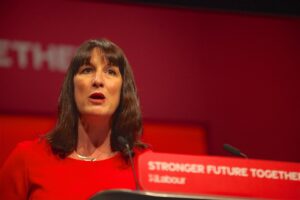A new think tank report claims the UK government must help poorer homeowners insulate their properties in hopes to progress with the net zero transition.
The Resolution Foundation, an independent think tank focused on improving the living standards of people on low to middle incomes, has argued that decarbonising homes is one of the hardest aspects of the conversion to net zero.
The Net Zero Strategy was enforced by the UK government and it sets out plans to reduce climate-wrecking emissions and decarbonise all sectors of the UK economy, including housing.
Founded in 2005, the Resolution Foundation has recently published a report which is calling for ‘tougher, more radical solutions’ to ensure the housing sector helps the UK become more sustainable.
The report, titled ‘Hitting a brick wall’, says the main issue that is preventing houses from becoming energy efficient is ‘leaky walls’. The think tank analysis shows four in 10 homes in England have walls that are rated as ‘poor’ or ‘very poor’.
Additionally, researchers discovered two in 10 homes in England have inefficient roofs and one in 10 have poorly graded windows, meaning keeping heat inside is posing as a major issue, as well as having to keep the heating on for longer, causing more CO2 to pollute the air.
Funded by the Nuffield Foundation, the report outlines that poorly constructed walls are most apparent in large cities, with 64% of all homes in London having poor quality walls.
Financially, people cannot afford to properly insulate their homes amid the current cost-of-living crisis. The think tank report displays the cost of wall insulation averages at around £8K and it can take up to 18 years to recoup upfront costs. Research has also shown that the cost of heating a home with poor insulation quality is likely to be around £360 higher between January and April next year, as costs are set to continue soaring.
In response to this, the Resolution Foundation have curated a new ‘carrot and stick’ approach – the organisation are combining targeted financial help for home improvements with a ban on poorly insulated homes by 2035.
Johnny Marshall, Senior Economist at the Resolution Foundation said: ‘England’s homes have as large a carbon footprint as our petrol and diesel powered cars.
‘The key policy task for the 2020s is finding a way of decarbonising millions of homes without leaving poorer households behind or burdening them with unaffordable costs.
‘Previous approaches such as cheap loans have failed to deliver improvements at scale, and the biggest barrier to energy efficient homes has been largely ignored: our leaky walls. The sheer cost of insulating Britain’s walls means that the state cannot be expected to foot the bill entirely.’
On the topic of trying to ensure homes stay warm this winter, other housing advisers have additionally implemented policies to try and help tenants. Last month the OSB Group launched their ‘Landlord Leader Fund’ to assist landlords in upgrading their properties to become more energy efficient.
Photo by Greg Rosenke

















Leave a Reply